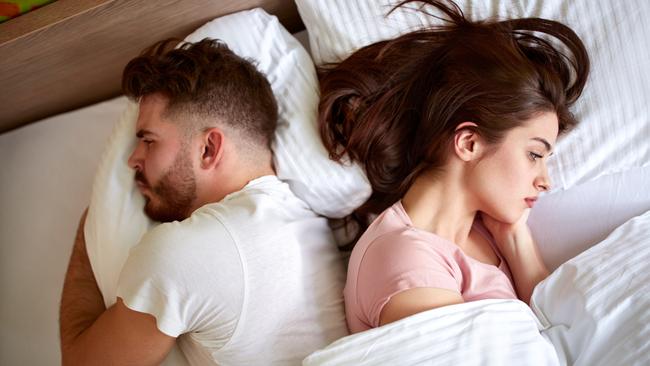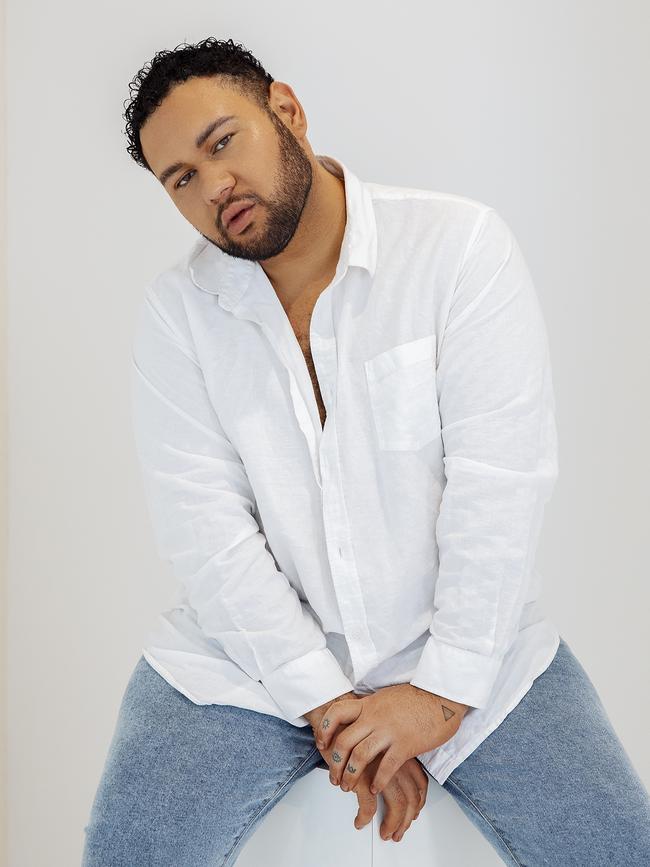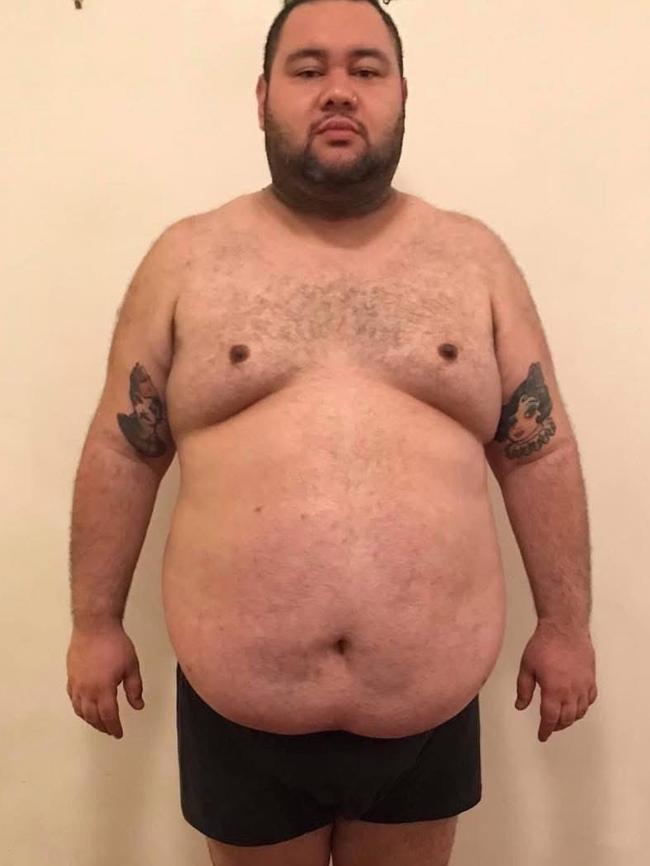Almost one in five Australian men avoid intimacy, sex due to insecurities and feeling judged
New research shows that almost one in five Australian men avoid intimacy and sex with a partner as they reveal the extent of their insecurities.
Sexual Health
Don't miss out on the headlines from Sexual Health. Followed categories will be added to My News.
Exclusive: More than a quarter of Australian men say a negative view of their bodies affects their sexual performance, with almost one in five avoiding intimacy with a partner due to insecurities, according to a report.
One of the biggest concerns men have about their bodies is perhaps an age-old one – the size of their penis – with 28 per cent of men saying they feel judged by a sexual partner.
The YouGov research, commissioned by Pilot, a digital healthcare clinic, found stigma, societal expectations and evolving definitions of masculinity are also having a damaging impact on men’s wellbeing.
While six in 10 believe men should be more open emotionally, half also believe stoicism is central to masculinity.
The Man Up and Get Over It – Australian Men’s Health Laid Bare report, also found half of Australian men experience anxiety or stress and almost half have battled depressive moods.
Intimacy and Relationship Coach Luke Skewes said body image and sexual performance weigh heavily on men.

“There’s intense societal pressure for men to look a certain way, to be ‘ready’ at the right moment, and to have extreme sexual stamina,” Mr Skewes said.
“The reality is that our bodies respond to stress, life challenges, lifestyle choices, expectations, and even the pressure to perform — and pressure is often the enemy of pleasure.”
Dr Ben Condon, from the online clinic Pilot said normalising seeking treatment and providing reassurance that there is discreet help available is crucial to improving men’s health.
The new report backs up our Body+Soul Health of the Nation survey which found higher social media usage is linked to depression and that those who are on social media for more than five hours a day are more likely to feel sad or depressed about their own lives.
Plus sized male model Wade-William Ambler, 36, said he suffered body dysmorphia after falling into the comparison trap on Instagram.
In an effort to change his body, he dropped from 199 kilos to 103 kilos, by going to the gym twice a day, isolating himself from friends so he could control his food and restricting calories, which would often leave him feeling dizzy.
“It became an obsession,” Mr Ambler, from Newcastle, NSW, said. “I was following so many fitness people on social media, but I was never going to look like them.”


Eventually he realised the weight loss was unsustainable. His has gained a few kilos but is now comfortable with how he looks. He was even scouted by a model agency to do plus-sized work and has fronted advertising campaigns for Woolworths, Big W, McDonald’s and Myer.
Even so he has to have thick skin.
“Modelling has improved my confidence,” Mr Ambler said. “But sometimes when I get there, they say I’m too big and other times I’m too small.”
He advised other men not to compare themselves with images they see on social media.
“As someone who’s both in front of the camera and behind the filters, I can definitely vouch that what you’re seeing isn’t the whole truth,” Mr Ambler said.
Pilot, which helped more than 72,800 men last year, has also partnered with This Is A Conversation Starter (TIACS), to offer men free early-intervention and short-term mental health counselling. No GP referral is required.
For help with emotional difficulties, contact Lifeline on 13 11 14 or www.lifeline.org.au
For help with depression, contact Beyond Blue on 1300 22 46 36 or at www.beyondblue.org.au
The SANE Helpline is 1800 18 SANE (7263) or at www.sane.org
More Coverage
Originally published as Almost one in five Australian men avoid intimacy, sex due to insecurities and feeling judged





